News
-
 Planetary Science
Planetary ScienceExperts don’t agree on age of Saturn’s rings
Saturn’s rings could be almost as old as the solar system, and the Cassini craft is poised to help find out.
-
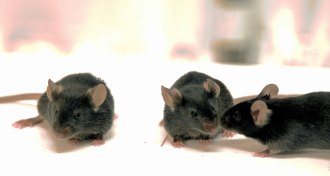 Neuroscience
NeuroscienceMice smell, share each other’s pain
Pain can jump from one mouse to another, presumably through chemicals detected by the nose.
-
 Archaeology
ArchaeologyWild monkeys throw curve at stone-tool making’s origins
Monkeys that make sharp-edged stones raise questions about evolution of stone tool production.
By Bruce Bower -
 Genetics
Genetics‘Three-parent babies’ explained
Several in vitro techniques can produce babies with three biological parents.
-
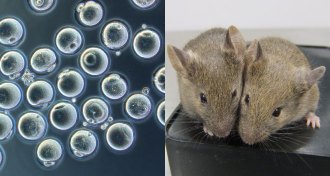 Life
LifeIn a first, mouse eggs grown from skin cells
Stem cells grown in ovary-mimicking conditions in a lab dish can make healthy mouse offspring, but technique still needs work.
-
 Neuroscience
NeuroscienceOut-of-sync body clock causes more woes than sleepiness
The ailment, called circadian-time sickness, can be described with Bayesian math, scientists propose.
-
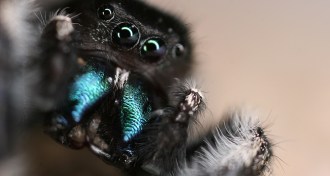 Animals
AnimalsBe careful what you say around jumping spiders
Sensitive leg hairs may let jumping spiders hear sounds through the air at much greater distances than researchers imagined.
By Susan Milius -
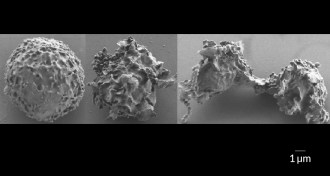 Life
LifePlacenta protectors no match for toxic Strep B pigment
Strep B uses a toxic pigment made of fat to kill immune system cells, spurring preterm labor and dangerous infections, a monkey study shows.
-
 Psychology
PsychologyErasing stigma needed in mental health care
Social forces drive those in need away from mental health care.
By Bruce Bower -
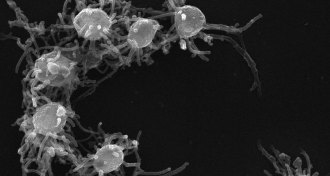 Life
LifeOne-celled life possessed tools for going multicellular
Unicellular ancestors of animals had molecular tools used by multicellular life.
-
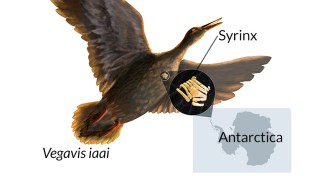 Paleontology
PaleontologyBirds’ honks filled Late Cretaceous air
Oldest avian voice box fossil yet discovered belonged to a ducklike bird that lived during the age of the dinosaurs.
By Meghan Rosen -
 Neuroscience
NeuroscienceNerve cell migration after birth may explain infant brain’s flexibility
A large group of neurons migrates into babies’ frontal lobes after birth.